Intro
Discover autism symptoms in adults, including social struggles, sensory issues, and repetitive behaviors, and learn about diagnosis, treatment, and management of autism spectrum disorder.
Autism, also known as Autism Spectrum Disorder (ASD), is a neurological and developmental disorder that affects communication, social interaction, and behavior. While it is often associated with children, autism can also affect adults. In fact, many adults with autism may have gone undiagnosed or misdiagnosed in the past, and are only now seeking a diagnosis and support. Understanding autism symptoms in adults is crucial for providing effective support and accommodations.
Autism symptoms in adults can be subtle and may not be immediately apparent. Many adults with autism have developed strategies to cope with their symptoms, such as masking or camouflaging, which can make it harder to recognize the signs of autism. However, by understanding the common symptoms and characteristics of autism in adults, it is possible to provide better support and improve their quality of life. Autism symptoms in adults can have a significant impact on daily life, relationships, and overall well-being.
The importance of recognizing autism symptoms in adults cannot be overstated. Early recognition and diagnosis can lead to improved support, accommodations, and interventions, which can significantly enhance the quality of life for adults with autism. Furthermore, recognizing autism symptoms in adults can also help to reduce stigma and promote greater understanding and acceptance of autism in the community. By understanding and acknowledging the experiences of adults with autism, we can work towards creating a more inclusive and supportive environment for all individuals on the autism spectrum.
Autism Symptoms in Adults: An Overview
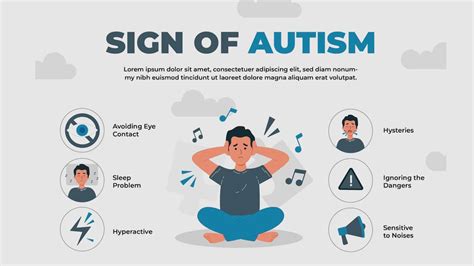
Common Autism Symptoms in Adults
Some common autism symptoms in adults include: * Difficulty with social interactions, such as initiating or maintaining conversations * Trouble understanding social cues, such as body language and tone of voice * Difficulty developing and maintaining relationships * Repetitive behaviors, such as hand flapping or body rocking * Strong interests in specific topics or activities * Sensory sensitivities, such as sensitivity to light or sound * Anxiety and depression * Difficulty with executive functioning, such as planning and organizationDiagnosing Autism in Adults
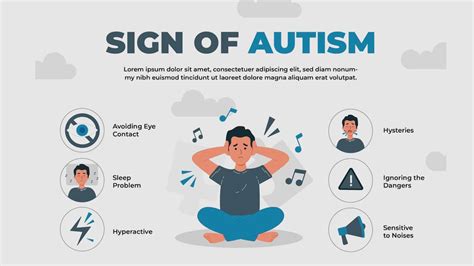
Steps in the Diagnostic Process
The diagnostic process for autism in adults typically involves the following steps: 1. Clinical interview: A comprehensive interview with the individual and their family members or caregivers to gather information about their developmental history, behavioral patterns, and social interactions. 2. Observation: Observation of the individual's behavior, social interactions, and communication style. 3. Cognitive and behavioral assessments: Standardized assessments to evaluate cognitive functioning, executive functioning, and behavioral patterns. 4. Review of medical and psychological history: A review of the individual's medical and psychological history to rule out other conditions that may be contributing to their symptoms.Treatments and Interventions for Autism in Adults
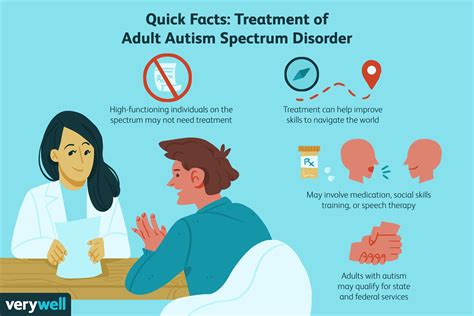
Benefits of Early Intervention
Early intervention and treatment can have a significant impact on the quality of life for adults with autism. Some benefits of early intervention include: * Improved social interactions and relationships * Enhanced communication skills * Increased independence and self-esteem * Better management of co-occurring mental health conditions * Improved overall quality of lifeSupporting Adults with Autism

Creating a Supportive Environment
Creating a supportive environment for adults with autism involves: * Providing a structured and predictable routine * Minimizing sensory overload and stress * Encouraging open communication and self-expression * Fostering a sense of community and belonging * Promoting independence and self-advocacyAutism and Mental Health
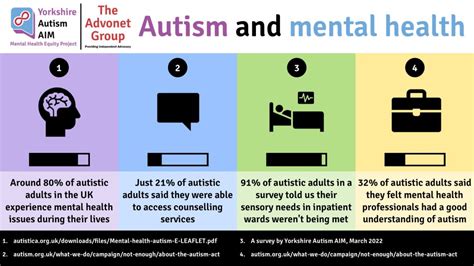
Common Mental Health Conditions
Some common mental health conditions that may co-occur with autism include: * Anxiety disorders * Depressive disorders * Suicidal ideation and behavior * Post-traumatic stress disorder (PTSD) * Obsessive-compulsive disorder (OCD)Autism and Employment
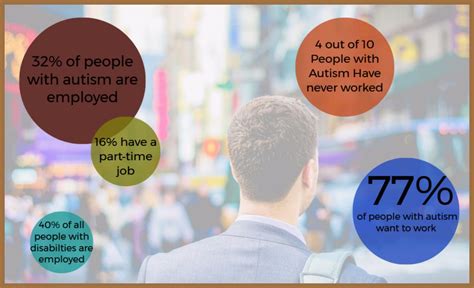
Accommodations and Modifications
Some common accommodations and modifications that can support adults with autism in the workplace include: * Flexible work schedules and environments * Modified communication styles and protocols * Assistive technology and tools * Job coaching and mentoring * Social skills training and supportAutism and Relationships
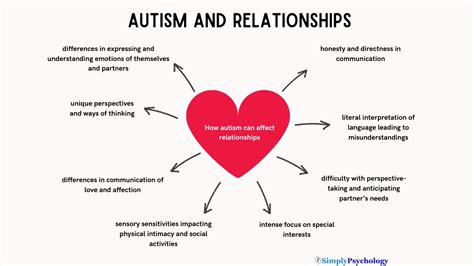
Building and Maintaining Relationships
Some strategies for building and maintaining relationships for adults with autism include: * Social skills training and support * Communication skills training and support * Emotional regulation and management * Boundary setting and assertiveness training * Building a support network of friends, family, and peersConclusion and Next Steps

We invite you to share your thoughts, experiences, and questions about autism symptoms in adults in the comments below. Your input and feedback are invaluable in helping us better understand and support adults with autism. Please feel free to share this article with others who may benefit from this information, and let's work together to create a more supportive and inclusive community for all individuals on the autism spectrum.
What are the common symptoms of autism in adults?
+Common symptoms of autism in adults include difficulties with social interaction, communication, and repetitive behaviors. Adults with autism may struggle to understand social cues, initiate or maintain conversations, and develop and maintain relationships.
How is autism diagnosed in adults?
+A comprehensive evaluation by a multidisciplinary team of professionals, including psychologists, psychiatrists, neurologists, and speech and language therapists, can provide an accurate diagnosis of autism in adults.
What treatments and interventions are available for autism in adults?
+Treatments and interventions for autism in adults may include behavioral therapies, medications, speech and language therapy, occupational therapy, and social skills training.
How can I support an adult with autism?
+Supporting an adult with autism requires a comprehensive and individualized approach, including providing accommodations and modifications, offering social skills training and social support groups, and promoting self-advocacy and self-expression.
What are the common mental health conditions that co-occur with autism in adults?
+Common mental health conditions that co-occur with autism in adults include anxiety disorders, depressive disorders, suicidal ideation and behavior, post-traumatic stress disorder (PTSD), and obsessive-compulsive disorder (OCD).
